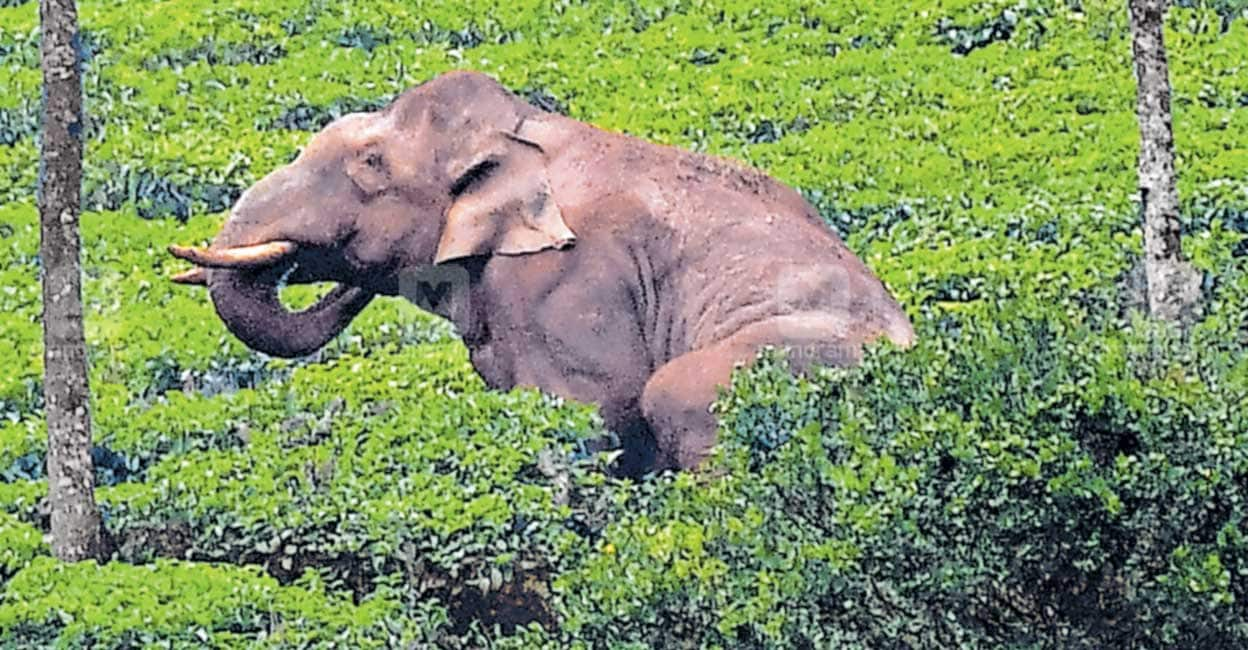From Arikomban to 4G, Idukki's wild tuskers have unique names

Mail This Article
Arikomban, the rogue wild tusker that has been creating havoc in the Chinnakanal and Shantanpara regions of Idukki for close to two decades, is a household name in Kerala now.
His fascination for raiding ration shops to steal rice earned him the fancy name that is a combination of the Malayalam words Ari (rice) and Komban (tusker).
As human-animal conflict is common in Idukki and other high-range regions of Kerala, it is not surprising that locals have names for more or less every rogue tusker.
The naming system is uncomplicated as it is often based on the invader's most common trait or simply some unique physical attribute. Here, we have chosen a few other wild tuskers of Idukki with unique names.

Chakka Komban
If Arikomban gets the name for his rice craze, another tusker in Idukki is called 'Chakka Komban' because of his fascination for 'chakka' (jackfruit).
Arikomban and Chakkakomban are often seen in the Aanayirangal region and locals say they are friends. While Arikomban has claimed at least 10 lives, Chakkakomban has not killed humans, but he has destroyed buildings and vehicles.

But Chakkakomban's appetite for jackfruit is so famous that locals of Anayirangal, Pooppara and nearby regions often bring down jackfruit in their properties before it ripens because if the tusker smells the sweet aroma, he would most certainly raid. Chakkakomban would stretch himself by planting his forelimbs on the tree and extending his trunk to pluck the fruit. To fetch those beyond his reach, Chakkakomban would shake the trees violently.
Hose Komban

Unlike Arikomban and Chakkakomban, this wild tusker roaming the Maattupetty region of Munnar gets his unique name not for his behaviour but quite simply due to his appearance. One of his tusks has a hose (pipe) made of PVC stuck to it. A few years ago, the tusker went on a rampage at a dairy farm in Mattupetty and in the process of damaging the water system, he got a hose, about a foot long, fixed onto his tusk. He was friends with 'Chillikomban', (one with a chipped tusk, hence the name) another notorious tusker of Maattupetty, which is dead.
4G
This tusker also roams the Chinnakanal area. While the three tuskers named above can be identified by actions and appearance, this wild invader has earned the fancy name for his out-of-the-box thinking. Incidentally, when he started invading the agricultural lands, the best telecom network in the country was 4G and the locals duly christened him so because of his advanced approach.
4G would uproot the local grandis trees and drop them over electric farm fences to help him cross without getting a shock.
Murivalan and Mottavalan
These are wild tuskers roaming Idukki's high ranges named for the distinct characteristics of their tails.
Mottavalan (bald tail) gets that name because he has no hair on his tail. And Murivalan (cut tail) is called so because he lost a part of his tail sometime ago.
Mottavalan and Murivalana have reportedly killed at least five and seven persons, respectively. They continue to terrorise the Chinnakanal and Panniyar regions.

